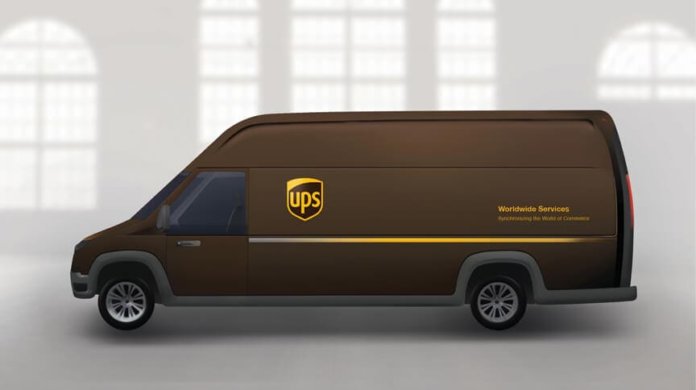Attaining environmental benefits and lower cost of ownership are driving more commercial fleets to electrify, according to new study released by UPS and GreenBiz.
In the “Curve Ahead: The Future of Fleet Electrification” report, industry stakeholders identify their main motivations and barriers to electrification, as well as strategies to move the commercial electric vehicle market from niche to mainstream.
According to the report’s findings, the top motivation to go electric for 83% of large businesses surveyed is meeting sustainability and environmental goals. A lower total cost of ownership – factoring in both direct and indirect costs and savings over the life of the vehicle – is the second-biggest driver, cited by 64% of respondents. In addition to the fuel savings, electric vehicles (EVs) typically require less maintenance than traditional internal combustion engine vehicles, which means lower maintenance costs, the report notes.
Despite an appetite for electrification, many fleet operators face challenges. Fifty-five percent of respondents cite the initial purchase price of electric commercial vehicles as the top barrier. Forty-four percent view inadequate on-site charging infrastructure as a barrier, and 92% advise their facility is not “very well-equipped” to accommodate commercial charging needs. However, the study also found that fewer than half of the companies surveyed are working with governments or utilities to address charging infrastructure.
“The challenges of cost and infrastructure requirements can be daunting, but we’ve begun to see solutions emerge,” says Scott Phillippi, UPS’ senior director of automotive maintenance and engineering. “In the U.S., we recently ordered 50 electric-powered delivery trucks that we anticipate will be at cost parity with conventional diesel-powered vehicles. And in London, we were able to find a solution for our charging needs through a collaboration between government and private organizations. The business case, combined with growing preference for EVs from cities and national governments, will help us to reach a tipping point to large-scale EV fleet adoption.”
Interviewed fleet managers and industry stakeholders suggested strategies to overcome such challenges, including starting small. Instead of undertaking a large-scale fleet overhaul, many companies will prioritize electric options when replacing vehicles and even consider electric leasing options to mitigate the initial purchase price. Converting from internal combustion engines to electric depends on specific vehicle uses, the size and distribution of fleets across regions, the costs of electricity, and access to charging infrastructure, the report says.
“Despite the complexity of transitioning commercial fleets to an electric future, the vehicle technologies and options to upgrade infrastructure are quickly improving,” says Paul Carp, GreenBiz Group’s director of research and senior analyst. “Continued industry collaboration will be critical to accelerate fleet electrification across a wide range of use cases.”
As the market for electric commercial vehicles matures, 70% of companies report working closely with vehicle manufacturers and suppliers to identify the latest electric vehicle technologies and features. According to UPS and GreenBiz, this communication is important given 32% of survey respondents cited inadequate product availability as a barrier. UPS notes it is working with commercial vehicle manufacturers such as ARRIVAL, Tesla, Thor Trucks and Workhorse, providing data and performance feedback to help foster product availability and create fleet solutions that fit its unique needs.
The study presents the findings of qualitative research, along with an online survey conducted by GreenBiz Group in June 2018 among more than 200 respondents within the GreenBiz Intelligence Panel.
UPS has a long history with electric vehicles; the company first introduced them into its U.S. fleet in the 1930s. UPS now has more than 1,000 electric and hybrid electric vehicles deployed worldwide. The company’s fleet of approximately 9,300 alternative fuel and advanced technology vehicles now drives more than 1 million miles each day. More on UPS’ alt-fuel initiatives can be read here.





